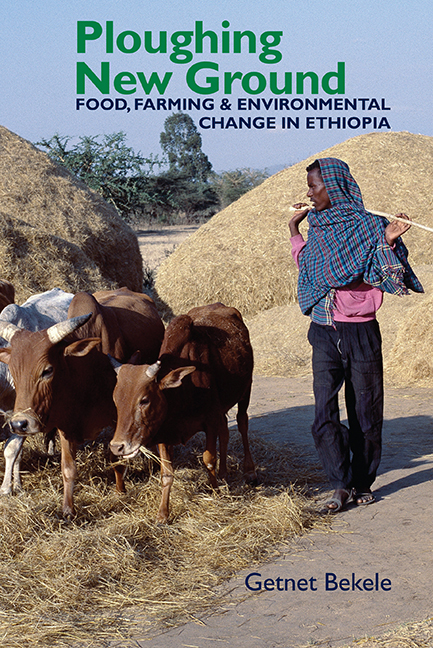Book contents
- Frontmatter
- Dedication
- Contents
- List of Maps and Tables
- Acknowledgements
- Note on Orthography
- Acronyms & Abbreviations
- Glossary
- Map
- Introduction
- 1 Landscape Pastoral: The making and remaking of a grassland environment, 1886–1916
- 2 Negotiating a Landscape: Continuity and change in a grassland environment, 1917–1941
- 3 Blurring the Boundaries: The ascendancy of crop production in a flexible environment, 1942–1955
- 4 Fresh Encounters and Morphing Strategies: The changing organization of production in an era of agricultural intervention, 1956–1965
- 5 Inputs, Outputs and the Farm: Transformations in the science, politics and praxis of agricultural development, 1966–1974
- 6 Competition and Co–existence: Creating space for small- to large-scale farming, 1966-1974
- 7 Of Production and Production Relations: Farming in an era of revolutionary change and socialist development, 1975–1991
- 8 Vicious Circle: Agricultural development at the time of ‘revolutionary democracy’, 1991–2016
- Conclusion
- Bibliography
- Index
- Eastern African Studies
3 - Blurring the Boundaries: The ascendancy of crop production in a flexible environment, 1942–1955
Published online by Cambridge University Press: 31 August 2018
- Frontmatter
- Dedication
- Contents
- List of Maps and Tables
- Acknowledgements
- Note on Orthography
- Acronyms & Abbreviations
- Glossary
- Map
- Introduction
- 1 Landscape Pastoral: The making and remaking of a grassland environment, 1886–1916
- 2 Negotiating a Landscape: Continuity and change in a grassland environment, 1917–1941
- 3 Blurring the Boundaries: The ascendancy of crop production in a flexible environment, 1942–1955
- 4 Fresh Encounters and Morphing Strategies: The changing organization of production in an era of agricultural intervention, 1956–1965
- 5 Inputs, Outputs and the Farm: Transformations in the science, politics and praxis of agricultural development, 1966–1974
- 6 Competition and Co–existence: Creating space for small- to large-scale farming, 1966-1974
- 7 Of Production and Production Relations: Farming in an era of revolutionary change and socialist development, 1975–1991
- 8 Vicious Circle: Agricultural development at the time of ‘revolutionary democracy’, 1991–2016
- Conclusion
- Bibliography
- Index
- Eastern African Studies
Summary
If, as shown in the previous two chapters, the lake region had been for the last half century a predominantly pastoral landscape, the situation started to change dramatically from 1942. Nothing illustrates that point better than the speed at which crop production expanded in that region in the next dozen years. Its major promoters had been an increasingly diverse group of populations, some of whom were also new to this region. Yet by far the most enterprising had been the local populations, most notably the pastoralists that developed interest in crop production more fondly than ever before. Although unprecedented, their new-found interest in farming was not, however, fortuitous. Rather, it was the strategy that they deliberately parlayed for contesting, renewing and asserting their entitlement rights on the land all over again. This is an important point, because the post-1942 period witnessed the escalation of the competitions for places and valued agricultural resources along previously existing and new lines. Among the factors that contributed to that escalation certainly the most important has been the demand for agricultural land and product that reached qualitatively new levels in Addis Ababa from 1942. Interestingly, it was by abandoning some of their traditional methods of land use and productive activity and by venturing in crop production that local pastoralists were able to cope with and thwart the pressures that they saw coming from Addis Ababa after that year. When seen from that angle, crop production was for them a means to a bigger end rather than an end in and of itself.
THE CONTOURS AND TECHNOLOGIES OF CROP PRODUCTION
By the time the joint Allied forces, mainly British and Ethiopian, drove the Italians out from their East African Empire in May 1941 the lake region was still a predominantly pastoral landscape. Supporting evidence to that argument can be found in the report that the British General Joyce published two years later. Joyce was a ranking member of the Occupied Enemy Territory Administration (OETA) that the British had organized in Addis Ababa following the Italian departure.
- Type
- Chapter
- Information
- Ploughing New GroundFood, Farming & Environmental Change in Ethiopia, pp. 60 - 80Publisher: Boydell & BrewerPrint publication year: 2017



